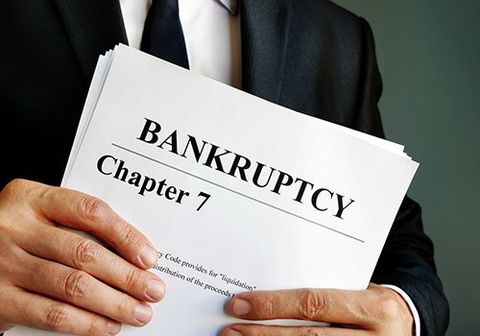FREE INITIAL CONSULTATION TO FIND OUT IF BANKRUPTCY IS RIGHT FOR YOU.
WHAT IS CHAPTER 7 BANKRUPTCY?
• • •
- Q: DO I GET TO KEEP MY HOUSE AND/OR MY CAR WHEN I FILE FOR BANKRUPTCY?
A: If you file for Chapter 7 bankruptcy in South Carolina, you can usually keep your house and/or your car if you continue to make your monthly payments on time, and as long as there is no equity in your property above the exemption amount.
- Q: WHAT TYPE OF DOCUMENTS DO I HAVE TO PROVIDE TO MY LAWYER BEFORE I CAN FILE?
A: The McMaster Law Firm, LLC will give you a complete checklist of items needed to complete your case. Examples of these items include pay stubs and tax returns. Click here for a link to worksheets and list of required documents.
- Q: DO I HAVE TO TAKE A CREDIT COUNSELING CLASS BEFORE I CAN FILE FOR BANKRUPTCY?
A: Yes. In 2005, Congress enacted a law that requires debtors to complete a court-approved credit counseling session prior to filing for bankruptcy. You will only have to complete your credit counseling course with one agency prior to filing. You will receive a certificate of completion, which expires 180 days from the date it is issued. Click here for links to all approved South Carolina credit counseling agencies.
- Q: WILL I HAVE TO GO TO COURT?
A: Yes. All Chapter 7 debtors are required to attend a minimum of one brief hearing. All hearings for the upstate division of South Carolina are held in Spartanburg, South Carolina. The upstate division of South Carolina includes the following counties: Abbeville, Anderson, Cherokee, Greenville, Greenwood, Laurens, McCormick, Oconee, Pickens, Spartanburg, Union and York. Click here for directions to the courthouse in Spartanburg.
- Q: ARE THERE DEBTS THAT I WILL HAVE TO CONTINUE TO PAY AFTER I FILE FOR BANKRUPTCY?
A: Yes. Examples of debts you will have to continue to pay are alimony, child support and court-ordered fines. There may be others. You will also have to pay any debts you fail to list on your bankruptcy, along with any debts obtained by giving false information. In most instances, you will have to pay student loans. Mortgages and other loans secured by property you wish to keep, such as a house, car, etc., will also have to be paid.
- Q: CAN I FILE FOR BANKRUPTCY WITHOUT MY SPOUSE?
A: Yes; however, if you have any joint debts, your spouse will still owe them. In addition, you must disclose all sources of household income when you file. This means that even if your spouse does not file with you, the laws require you to provide proof of your spouse’s income.
- Q: HOW WILL FILING FOR BANKRUPTCY AFFECT MY CO-SIGNER?
A: If someone co-signs a loan with you, the co-signer will still owe the debt if you file for bankruptcy.
- Q: WHEN WILL CREDITORS STOP CALLING ME?
A: As of the date of filing bankruptcy, it is against the law for creditors to call or make any attempt to collect a debt.
- Q: DO I HAVE TO INCLUDE ALL DEBTS WHEN I FILE FOR BANKRUPTCY?
Yes. Federal law requires you include all debts you owe as of the date of filing for bankruptcy, even the debts you wish to continue to pay. This does not necessarily mean you will lose things, such as your home and your vehicle.
- Q: WHAT IS A BANKRUPTCY DISCHARGE?
A: A discharge is a release of the debtor from personal liability for certain specified types of debts. A debtor is no longer required by law to pay any debts that are discharged. The discharge orders creditors of the debtor to refrain from taking any form of collection action on discharged debts, including legal action, telephone calls or letters. If a debtor intends to continue making payments on collateral securing a lien, such as a house or a boat, the creditor continues to have the legal right to foreclose or repossess any collateral due to nonpayment. Certain types of debts cannot be discharged.
FREE Initial Consultation
We will get back to you as soon as possible.
Please try again later.



